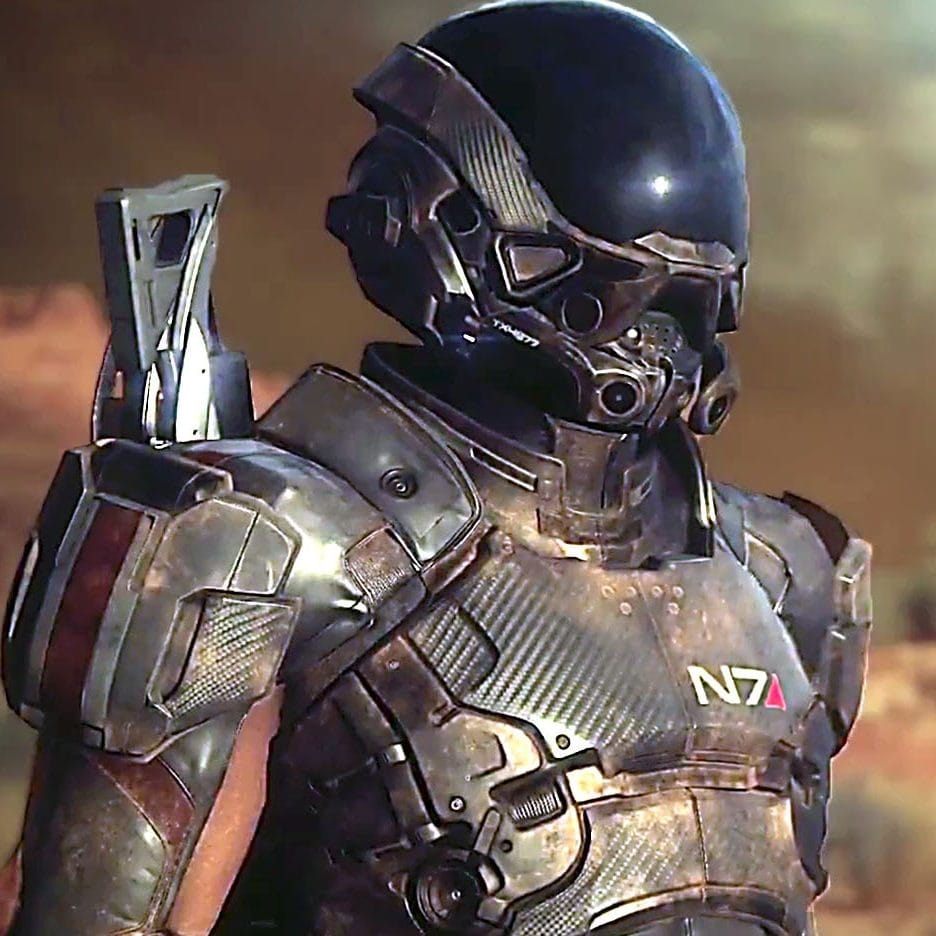Mass Effect: Andromeda stumbles into the unknown
🔗 [SYSTEM UPDATE] Link found. Timestamp incremented on 2025-11-26 13:55:13.Five years after Bioware wrapped up the critically acclaimed Mass Effect trilogy, they deliver gamers a tantalizing clean slate with Mass Effect: Andromeda. HAYDEN WAUGH reviews a game that could have great.


The epic reveal of the Tempest means your job as human Pathfinder has begun.
MASS EFFECT: ANDROMEDA
Developer: Bioware
Genres: Sci-fi; Action-RPG; Third-person shooter
Platforms: PC, Xbox One, Playstation 4
Reviewed On: Xbox One
Score: ★★★½
GAME REVIEW
By HAYDEN WAUGH
Five years after Bioware wrapped up the critically acclaimed Mass Effect trilogy, they deliver gamers a tantalizing clean slate with Mass Effect: Andromeda.
This latest venture easily finds its groove through a meatier combat system and crisp graphics, but is also held back by technical issues and story-driven potholes.
A portion of humanity – along with an assortment of other alien races – has been shot into deep space. The Andromeda Initiative, a group of large multi-species ships, is tasked with exploring a new galaxy to colonise distant planets.
After 600 years in cryo-sleep, they awake in the Heleus cluster to initiate survey teams and evaluate so-called Golden Worlds.

Andromeda’s prologue is drawn-out and triggers several red flags from the outset. Not only does the frame-rate on the Xbox One nosedive during several hectic skirmishes, but the dialogue isn't particularly impactful and the animations are below-par.
The latter may seem particularly nonsensical to newcomers, but it’s an invaluable facet when character interactions are such an important part of the game.
Becoming the human Pathfinder – responsible for finding a habitable world for humanity – is a more believable process than the typical "chosen one" scenario. Tensions are high and you feel the pressure instantly.
Fortunately, Andromeda becomes better after the opening five hours. Gaining access to your cruise ship (the Tempest) sets the tone for what’s to come: exploration and discovery.
Most planets are utterly stunning. Even the Nexus, initially devoid of activity, springs to life as your accrued planet viability points are spent on waking up key scientists, military, or financial personnel from cryostasis.
The ever-increasing buzz around the huge space station is satisfying but the sheer fact that you see more and more AI refusing to move freely brings the player out of the experience.

From mountainous cities with corrosive lakes, to cruising around harsh deserts in your Nomad vehicle, to luminescent night-time settings plucked out of an Avatar film, Mass Effect: Andromeda delivers fantastic graphics. The added ambience of distant birds, beasts, wind, or even gunfire makes every potential home planet a pleasure to explore.
Each potential Golden World is huge. Some contain several layers due to sheer verticality or the discovery of underground structures, and loading issues aren't an issue.
The variation in quests, though, is a bit of a problem. Whether it’s collecting minerals for a science team or delivering a shipment of ordnance to a mercenary, your character, ultimately, feels like a postman. The tasks quickly add up and follow a familiar formula, on top of scanning with the omni-tool to find researchable technologies, which feel like more of a chore than actual fun.
There isn’t a lot of in-game music for Andromeda, either. Where previous titles never shied away from injecting emotive chimes and an impactful bass into its score, here Bioware shows an uncomfortable desire to consistently abandon those elements entirely.
So much so that veteran Mass Effect players will rarely hear those inviting or looming sci-fi tunes during cutscenes or even when landing on a new planet. It’s a perplexing choice and this lack of music, whether used in a narrative or exploratory sense, frequently makes Andromeda feel incomplete.
One of Mass Effect’s most recognisable gameplay mechanics, the Paragon/Renegade morality system, has also been scrapped.
Instead, players choose from strings of dialogue carrying different moral tones. Consequences as a direct response to dialogue choices are given a free pass in most instances as there are no gut-wrenching moral impasses in Andromeda that were a major highlight of its predecessors.

But you never have to go far to discover what Andromeda excels at – the combat.
Your Ryder of choice can major in combat, biotic, or tech skills and select from an array of profiles. These profiles determine which bonuses mesh with the skills you take into battle.
Andromeda has an "open class" battle system so, unlike previous Mass Effect games, players aren’t locked in to a particular play style. There’s so much choice to mix and match abilities, and a special favourites menu that swiftly interchanges between preset loadouts is a fantastic inclusion.
Moving more freely with jump-jets helps, too. Quickly darting upwards to reach a balcony or to the side to reach cover keeps you on your toes and adds spice to every encounter.
There’s an impressive spread of weaponry that has visual appeal as well as those nice sci-fi sound effects of a punchy assault rifle or a regenerating shield.
However, no longer can players tinker with squadmate loadouts and activate their abilities on the fly. Directing your team is still optional but you don’t have a say in what happens when they get there. This is one of the stranger choices in game design from the Bioware team.
Outside of combat, there’s even more to do. You can roam planets in the Nomad to set up forward stations – a stepping-stone to establishing outposts. Mining scales areas on a hot/cold basis suitable to gather minerals. Launching space probes returns from Mass Effect 2 but only to investigate detected anomalies in the area, which is a nice touch.
Players can also complete strike teams, which involves AI tackling certain tasks through the multiplayer system for more minerals, credits, and crafting materials. Collectively, these extra activities add another level of depth to the title.
At first glance, Mass Effect: Andromeda is a great video game. Only when you look closely does its problems start to appear. This game has broken from the familiar, but, while it does some things right, it hasn’t left the original trilogy behind with a lot of confidence.





